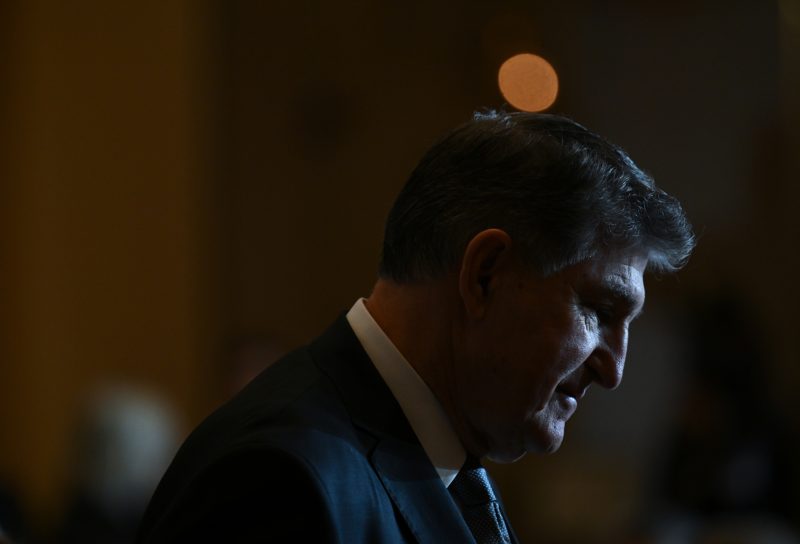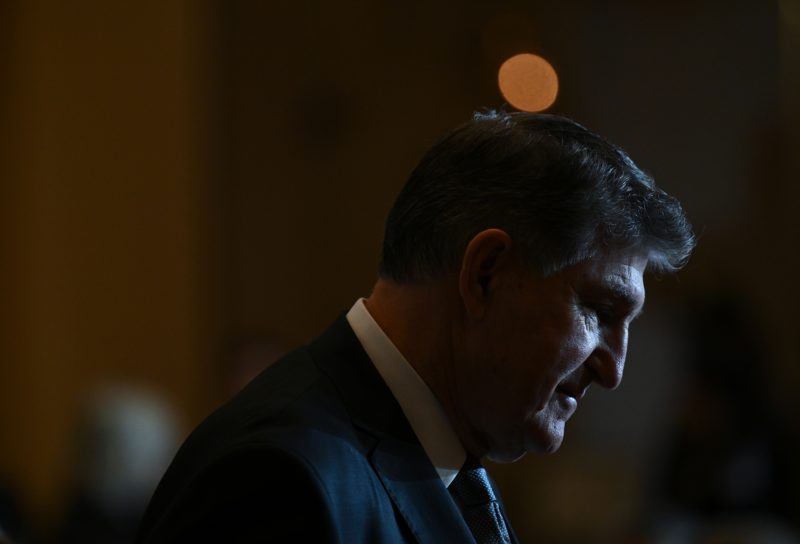
Sen. Joe Manchin III (D-W.Va.) announced Friday that he will not run for president after months of flirting with a campaign that could have complicated the 2024 race for the White House.
Manchin said during a speech in West Virginia he “will not be involved in a presidential run” as he continues to focus on other ways to bring a divided country together. He also said he did not want to play the role of a spoiler as President Biden nears a likely rematch with former president Donald Trump.
“I just don’t think it’s the right time,” Manchin said. “Democracy is at stake right now.”
Manchin, a centrist Democrat who has relished his influence in a closely divided Senate, has stoked speculation for months that he could enter the presidential race as an independent or third-party candidate. He has aligned himself with No Labels, a bipartisan group that has been looking into fielding a possible centrist ticket.
Manchin’s flirtations have been a source of anxiety for Democrats as they look to a likely Biden-Trump rematch, already a close race in many battleground states.
Speaking in Morgantown, W.Va., Manchin did not dwell on the Biden or Trump candidacies but promised to work to “secure a president that has the knowledge and has the passion and has the ability to bring this country together.”
Asked about Manchin’s decision later Friday, a Biden campaign spokesperson, Michael Tyler, offered only praise for the senator, saying Manchin has been an “incredible partner” for the administration in Congress.
Manchin would have been a long shot in the presidential contest, where any third-party or independent run requires a robust effort to gain ballot access, among other unique considerations. Manchin acknowledged that the process is “very challenging” as it stands now.
No Labels made clear after Manchin’s announcement that the group is still exploring its options.
“No Labels is currently speaking with several exceptional leaders about serving on the presidential Unity ticket,” said a statement from the group’s national co-chairs: Joe Lieberman, Benjamin F. Chavis Jr. and Pat McCrory. “We are continuing to make great progress on our ballot access efforts and will announce in the coming weeks whether we will offer our line to a Unity ticket.”
The current independent candidates include Robert F. Kennedy Jr., the nephew of President John F. Kennedy, and Cornel West, the progressive activist and philosopher.
The speculation about Manchin’s plans increased after he announced in November that he would not seek reelection, a blow to Democrats’ hopes of retaining their Senate majority. At the time, he said he would travel the country to gauge “interest in creating a movement to mobilize the middle and bring Americans together.”
Manchin’s daughter launched a political group, Americans Together, that has since helped organize his travel, including to early-voting states like New Hampshire.
Manchin continued to keep speculation alive about a presidential run through Thursday, when he appeared in Cleveland and floated Sen. Mitt Romney (R-Utah) as a potential running mate.
A political institution in West Virginia, Manchin has held his Senate seat since 2010, previously serving as governor of the state. He has beaten the odds by winning the seat in the deeply red state, which went for Trump by nearly 40 percentage points in 2020.
Gov. Jim Justice and Rep. Alex Mooney (W.Va.) are now running in the Republican primary to succeed Manchin, a race the GOP is favored to win in November with Manchin retiring.
Manchin has long lamented the firm hold that the two major parties — and their extremes — have on American politics. He spent most of his speech Friday reiterating that critique, pointing to the recent Senate immigration deal that collapsed in part because Trump said it would politically help Biden.
“I never, ever, ever thought I would see what I saw last week,” Manchin said, adding that “good friends of mine … cowered to former president Trump’s request not to fix the border.”

